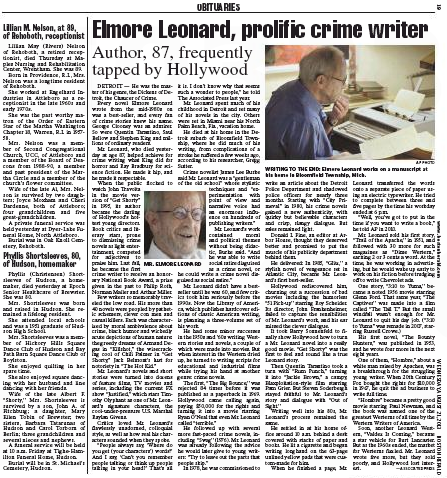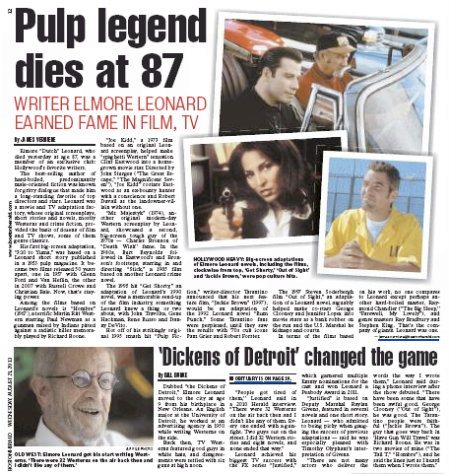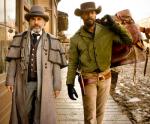New York Times columnist Nicholas Kristof kicked off quite a rumpus with his Sunday piece in which Dylan Farrow accused her adoptive father Woody Allen of sexually molesting her when she was seven years old.
Dylan Farrow’s Story
WHEN Woody Allen received a Golden Globe award for lifetime achievement a few weeks ago, there was a lively debate about whether it was appropriate to honor a man who is an artistic giant but also was accused years ago of child molestation.
Allen’s defenders correctly note that he denies the allegations, has never been convicted and should be presumed innocent. People weighed in on all sides, but one person who hasn’t been heard out is Dylan Farrow, 28, the writer and artist whom Allen was accused of molesting.
Well, she has been now – Kristof posted this on his blog over the weekend.
An Open Letter From Dylan Farrow
What’s your favorite Woody Allen movie? Before you answer, you should know: when I was seven years old, Woody Allen took me by the hand and led
me into a dim, closet-like attic on the second floor of our house. He told me to lay on my stomach and play with my brother’s electric train set. Then he sexually assaulted me. He talked to me while he did it, whispering that I was a good girl, that this was our secret, promising that we’d go to Paris and I’d be a star in his movies. I remember staring at that toy train, focusing on it as it traveled in its circle around the attic. To this day, I find it difficult to look at toy trains.
For as long as I could remember, my father had been doing things to me that I didn’t like . . .
Compelling stuff, and enough to draw two columns in the Boston Herald today.
First up: Margery Eagan, who calls the allegations “sickening.”
In the days leading up to the Oscars, we’ll likely hear that Dylan is lying, crazy or both. Or we’ll hear the old dodge of critics, that we must separate the
man from the art. Many artists — male artists, anyway — are creeps, scoundrels and worse.
But how can we separate Woody Allen’s art from the nauseating, criminal allegations Dylan Farrow first told her mother and police two decades ago? Last night, I tried watching “Annie Hall” again. Whenever Allen appeared, I didn’t see a cinematic genius. I saw a sick, monstrous father in that dim attic with his shattered little girl.
Next up: James Verniere, who asks this question: “Are ‘Annie Hall’ and ‘Blue Jasmine’ any less great if their creator did what Farrow says he did?”
A better question might be, should the Times have run Kristof’s column at all? That’s the one Times public editor Margaret Sullivan asked on her blog yesterday. She doesn’t provide an answer, but she does write this: “I urge those who who have not yet done so to read Robert B. Weide’s illuminating article [in The Daily Beast]. It provides essential context.”
And a good place to start.
UPDATE: Margery Eagan replies, “Better place to start Maureen Orth’s piece — Weide completely underwhelming, plus he big time in woody camp.” Possible tiebreaker: this Guardian piece by Michael Woolf.



 Posted by Campaign Outsider
Posted by Campaign Outsider 







